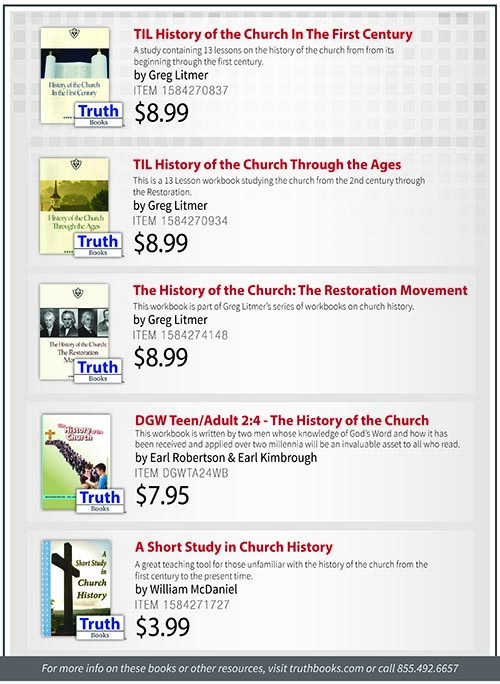

by Marc W. Gibson
Synopsis: Submission and gratitude to God encourage the spirit of giving that provides true assistance to those who are needy.
Not long after the people of Israel left Mount Sinai on their way to the Promised Land, the mixed multitude who were among them yielded to intense craving (literally, lusted intently). They wept and said, "Who will give us meat to eat? We remember the fish which we ate freely in Egypt, the cucumbers, the melons, the leeks, the onions, and the garlic; but now our whole being is dried up; there is nothing at all except this manna before our eyes!" (Num. 11:4-5). These complainers felt "entitled" to have meat in addition to the manna they now loathed (cf. Num. 21:5). Their arrogant and ungrateful attitude is shocking since their very lives were being sustained in a barren wilderness by a gracious and loving God. Their "entitlement mentality" had destroyed the humble, submissive, and dependent spirit that gratefully acknowledges the bountiful assistance of a benevolent God.
Our society has been engaged in a spirited debate concerning "entitlements" for several years. While politics has been the arena where most of this discussion has occurred, there is a need for a spiritual and biblical perspective on this issue.
The "entitlement mindset" involves that belief that one is deserving of or entitled to certain privileges/benefits. Certain types of compensation, care, and protection are provided for the poor, disabled, and others in our society who are less fortunate, largely through government programs. While such programs are needed, those having an "entitlement mindset" claim that they are owed certain free benefits by society because of their age, race, cultural background, education, religion, or lifestyle choices. This mindset takes President John F. Kennedy's appeal to "ask not what your country can do for you, but what you can do for your country" and selfishly twists it to "demand what big government owes you because that's what you're entitled to!" Even more troubling, this mindset corrupts the godly spirit of charity, brotherly love, and thanksgiving.
Without question, there have always been those who need the assistance and benevolence of others. Many such ones suffer through no fault of their own due to age or sickness, the death of family members (widows and orphans), or some other personal disaster. Some make unwise decisions that they later regret, bringing suffering and hardship on themselves and others. Christians should not be hardhearted, but "as we have opportunity, let us do good to all, especially to those who are of the household of faith" (Gal. 6:10).
Widows and orphans are especially noted in scripture as worthy of benevolent help from Christians and society. "Pure and undefiled religion before God and the Father is this: to visit orphans and widows in their trouble, and to keep oneself unspotted from the world" (James 1:27; cf. Isa.1:17b). The word episkeptomai ("to visit") means more than just stopping by for a chat, but to "look in on" in order to see how one may help or assist.
There are others who suffer from poverty or disabilities. The U.S. welfare system was originally intended to furnish a "safety net" for those who could not provide for themselves due to circumstances beyond their control, but it has grown into a money-pit tempting those who would game the system through fraud and abuse to feed their greed. Lazy people find that getting a check in the mail is easier than looking for a job. Some unmarried mothers learn that the more children they have out of wedlock, the greater the welfare assistance. The culture of government dependence and entitlement is corrupting the work ethic that is the backbone of a strong economy, as well as the moral ethics necessary to maintain an orderly society. Paul taught that a man should labor "working with his hands what is good, that he may have something to give him who has need" (Eph. 4:28). Benevolence for the needy is provided by the labor of those who can work. This balance must be maintained for the good of all.
David wrote, "The Lord will maintain the cause of the afflicted, and justice for the poor" (Ps. 140:12; 146:7). God taught the people of Israel to care for those in need. They must "learn to do good; seek justice, reprove the oppressor; defend the fatherless, plead for the widow" (Isa. 1:17), and "plead the cause of the poor and needy" (Prov. 31:9). It was not a massive government program, but involved individuals looking out for the needs of their neighbors.
When Israel reaped their grain fields and vineyards, they were commanded to leave some produce to be gleaned by the poor, the stranger, the fatherless, and the widow (Lev. 19:9-10; 23:22; Deut. 24:19-22). These individuals could not grow or easily buy what they needed, so this "safety net" was provided by God to feed those truly in need. Ruth and her mother-in-law, Naomi, were widows who received help as Ruth gleaned heads of grain in the fields of Boaz (Ruth 2). Boaz considered the help she received from his field repayment and reward from the Lord "under whose wings" Ruth had come "for refuge" (v. 12). Little did he know that he would also be part of that reward when he became her husband!
The Jubilee Year (which occurred every fifty years) was also a time of relief for those under difficult obligations, such as debtors and slaves (Lev. 25:8-55). It provided a fresh start and good feelings throughout the nation of Israel.
At the very beginning of the church, the early Christians in Jerusalem had all things in common, sold their possessions and goods, and divided them among all as anyone had need" (Acts 2:44-45). This had to be especially helpful to those Christians who came from other places that now needed assistance to stay in and around Jerusalem. As time went on, the brethren made sure no one lacked, selling their lands or houses, bringing the proceeds to the apostles' feet, "they distributed to each as anyone had need" (Acts 4:32, 34-35).
Some believe that this example endorses a socialistic or communistic system of government. The voluntary benevolent actions of these early Christians, under the oversight of the apostles, is quite the opposite of a socialistic/communistic system of government that abolishes private ownership and requires by law that all wealth be turned over to the state. Cheerful, purposeful, and voluntary giving is what characterizes the people of God (2 Cor. 9:6-10).
As to the care of those in need in a congregation, the family is the first "safety net" for an individual. "But if any widow has children or grandchildren, let them first learn to show piety at home and repay their parents; for this is good and acceptable before God…If any believing man or woman has widows, let them relieve them, and do not let the church be burdened, that it may relieve those who are really widows" (1 Tim. 5:4, 16). The church has the responsibility to help when no family is available to fulfill their duty. We also see local churches sending benevolence to help relieve the needy among brethren in other congregations (Acts 11:27-30; Rom. 15:25-26; 1 Cor. 16:1-4; 2 Cor. 8-9). Such continues to be the case today, especially when hurricanes, floods, and other disasters overwhelm the capacity of a congregation to help its members in dire need.
The "social gospel" movement in the denominational world arose in the late nineteenth century and focused on labor movements and various social injustices. There was a push to include the social assistance of the poor, homeless, and other needy individuals as the work of the church to improve society. Soon enough, liberal-minded leaders and editors among churches of Christ became enamored with this growing and popular social gospel movement.
This social gospel philosophy has led to the "institutional" concept of the church which has given rise to church "ministries" providing for every conceivable social and carnal need, such as entertainment, meals, athletics, child care, homeless shelters, secular education, and other social, and community services. Many institutional churches maintain and support benevolent institutions (i.e., orphan homes, old age homes, hospitals), and provide gymnasiums, and family life centers for recreational purposes. This desire to incorporate the social gospel as a work of the church continues to be a point of division between brethren.
No one disputes that individual Christians can, and should, help anyone, saint or sinner, who is in need (Gal. 6:10), but Bible authority is lacking for the local church to function as a general relief institution (such as the Salvation Army) beyond its responsibility to care for needy saints. Such "progressive" thinking goes beyond (transgresses) the revealed doctrine of Christ (2 John 9). In the end, the social gospel mentality causes many to wrongly look to the church as an institution of social reform rather than a body of believers who are to sound out the saving gospel that will save souls from the spiritual death (1 Thess. 1:8).
Regardless of our lot in life, none of us is in a position to arrogantly demand his "rights." We are blessed to possess the life that is given by only by God (Acts 17:25), from whom every good and perfect gift comes (James 1:17). The entitlement mentality causes one to think about what he should receive rather than how he can give to help others. It contradicts the divine wisdom of Jesus who said, "It is more blessed to give than to receive" (Acts 20:35). It also robs men of the spirit of faithful submission and gratitude to our God. As sinners, we are entitled to nothing except the wages of sin, which is death (Rom. 6:23).
Instead of demanding what we think we "deserve," let us remember that we are weak and pitiful creatures before our Almighty Creator, and only by His grace do we enjoy any and every blessing of life. Instead of being overcome by anxiety and complaining about what we need, let us engage in honest labor and have faith that God will provide for our needs as He does for all His creation (Luke 12:22-34; Eph. 4:28; Eccl. 5:18-20). Let us follow the teaching of Christ to "seek first the kingdom of God and His righteousness, and all these things shall be added to you" (Matt. 6:33). Submission to the Lord and to one another humbles the heart and promotes gratitude for blessings received from God and man (1 Pet. 5:5-7; 1 Thess. 5:15-18).
God has provided the motivation and means for us to help those truly needing assistance and benevolence. The divine motivation is love, and the means is the spirit of giving that is cultivated in the hearts of men through the gospel of Christ. May we fulfill the will of God and do good unto all men.
Author Bio: Marc has labored for the Central congregation in Tampa, FL for six years. He and his wife, Kellie, have four children. He can be reached at marcgibson@verizon.net.
